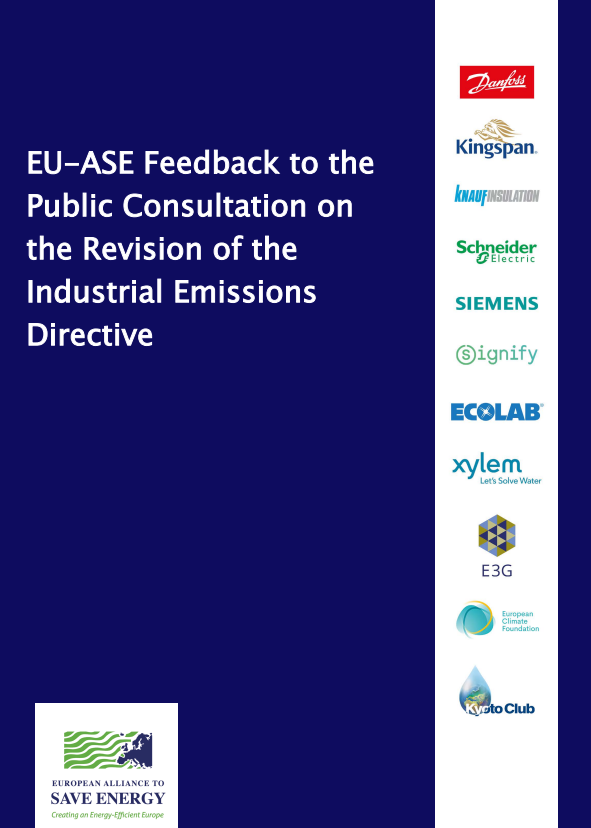Today, the Council of the European Union adopted its general approach on the recast of the Energy Efficiency Directive (EED). This is a fundamental legislative step for the Union to reduce its greenhouse gas emissions by at least 55% by 2030 and phase out fossil fuel imports from Russia as soon as possible.
EU-ASE welcomes that for the first time, the Union is getting closer to finally have a binding target for energy efficiency, departing from the current Energy Efficiency Directive which only sets an indicative energy efficiency objective. Furthermore, although national contributions are not binding, the Council agreed on a governance of the Directive which would allow the Commission to activate a “gap-avoider” mechanism if the sum of contributions do not add up towards the EU target. It is an important step forward.
But the Council lost a major occasion to put Energy Efficiency first and act on high energy prices by creating the right regulatory conditions to reduce energy demand for families and business. Firstly, the Council did not take up the proposal of the Commission to increase the energy efficiency target of at least 13% as issued in the REPowerEU strategy.
This is hardly justifiable, knowing that a 9% target would still imply Member States importing 233 bcm of fossil gas annually from third countries, while a 19% target would reduce gas imports to 104 bcm per year i.e. achieving in full the goal to reduce to zero Europe’s dependence on Russian natural gas, as Russia accounts to 40% of all of the EU’s gas imports. Secondly, Ministers did not agree to make the target for primary energy consumption binding, thus undermining the potential for energy savings gained at system level.
Monica Frassoni, President of the Alliance, said: “The Council general approach is not the end of the story: the European Parliament’s rapporteur position aims to a much more ambitious 19% energy efficiency target by 2030, which reflects the potential for energy savings. We support wholeheartedly the effort of the rapporteur Niels Fuglsang and of the many stakeholders at EU and national level working to boost investments in energy efficiency. Energy Efficiency First will increase Europe’s resilience and is a formidable way to address the energy and climate crisis”.
You can find the full press release here
About us
The European Alliance to Save Energy (EU-ASE) is a cross-sectoral, business-led organisation that ensures that the voice of energy efficiency is heard across Europe. EU-ASE members have operations across the 27 Member States of the EU, employ over 340.000 people in Europe and have an aggregated annual turnover of €115 billion.




